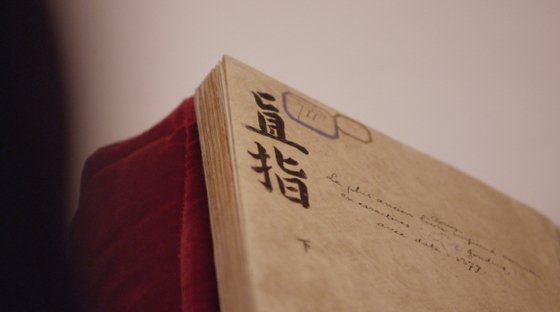Jikji is the world’s oldest extant Korean book made by movable metal type printing. It’s known to be older than Germany’s Gutenberg Bible, which was thought to be the oldest existing book in the world for quite some time. This book was written by Buddhist monk Baegun. The name, ‘Jikji’ means that when someone’s heart is seen correctly through Zen meditation, there will be the nature of Buddha in the heart. Baegun printed and published two volumes in the Goryeo dynasty in the year of 1377. The book has in total of 307 chapters with 154 subsections. Currently, the first one is lost and the second one is in the Manuscrits Orientaux department of the National Library of France. In September 2001, Jikji was officially confirmed by UNESCO and was included in the Memory of the World. Then in 2004, the Jikji Memory of the World Prize was invented to commemorate Jikji.
Jikji is comprised of the teachings of the most famous and respected Buddhist monks throughout the centuries. By Buddhist teachings, they are his sermons, conversations, and literary writings. Baegun hoped that the book would guide his students and the followers of Buddhism to Buddha and its religion, aiming to help people reach their inner freedom.
At the end of Joseon Dynasty, Colin de Plancy, a French diplomat brought Jikji from Korea to France. While he was working in Korea, he started collecting Joseon’s traditional ceramics and history books. Then after his term ended, he brought the collection back to his country. Plancy then sold Jikji to Henri Vever, an antique dealer for 180 francs. After Vever’s death, the second volume of Jikji was given to the National Library of France according to his wish. The first page of the second volume was torn out so only 38 sheets remain today. The Early Printing Museum and the World Jikji Culture Association have been working together to find the first volume, but it still somewhat remains a mystery. In 1972, Jikji was presented to the world for the first time when the National Library of France hosted the “International Book Year.”
With regard to this matter, it brings a controversy on the topic of ownership. Is it Korea or France? To which country does Jikji belong? This is a sensitive issue for both countries. The National Library of France contends that the artifact should remain in France because it is a representation of meaningful and historic heritage of the world and does not belong to any specific country. The fact that Jikji was taken legally at that time also supports their opinions. On the other hand, Korean activists say that the book should come back to Korea since it originated there and that it has a lot of meaning and significance to Korean people.
During the presidency of François Mitterrand, a former French president from 1981 to 1995, he searched for ways to return various Korean antiquities, including 650 relics of Silla, Goryeo and Joseon era. In 2011, the president sent about 297 volumes with 191 different Uigwes of the Gyujanggak back to Korea. They were then placed at the National Museum of Korea. Jikji was also on the agenda, but eventually it was not included in the return list because of opposition from France.
To this day, there still remains the unsolved problem of Jikji, but the fact that the oldest book made by movable metal type printing from Korea is preserved to this day should be remembered and treated with great attention.
-
K-UNIV Reporter
Yewon Shim


